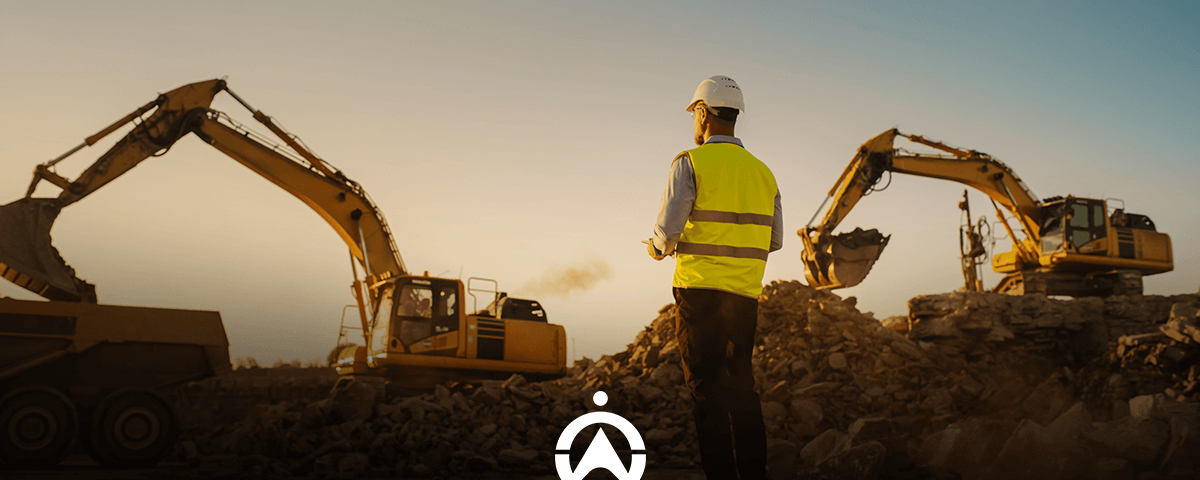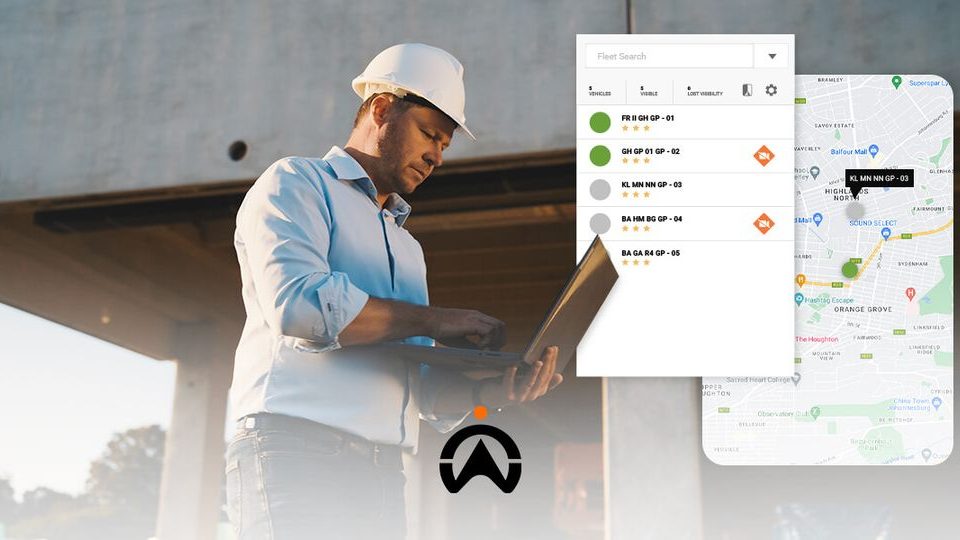Fleet Management for The Mining Industry
Are you a fleet manager looking for more effective ways to tackle the unique challenges that mining companies face? If so, you have come to the right place.
Cartrack, known for its exceptional recovery rate, has developed fleet management solutions that you can tailor to your business’s specific needs. Explore how fleet management combat the mining industry’s most complex problems.
Role of fleet management systems in mining operations
Fleet management isn’t just about tracking vehicles. It’s about addressing the most challenging issues that fleet managers face in the mines. Additionally, it’s focused on maximising productivity, minimising costs, and ensuring your employees are safe.
To meet the demands of the mine, here are the core functions of fleet management essential for mining operations.
Real-Time Asset Tracking and Monitoring
Real-time tracking for mining is like having a birds-eye view of your entire fleet and is an essential part of mining. The telematics systems allow fleet managers to monitor their fleet over vast and very remote mining sites. It acts as a live feed that lets you know what’s happening in real-time. This enables fleet managers to respond quickly to theft attempts, delays or safety concerns. Real-time tracking also ensures that you have constant visibility of your driver’s behaviour and the health of your fleet.
Enhanced Safety Measures
Being on a mining site can be very dangerous even for the most experienced mining operators. It is very unpredictable which can be a challenge to mining companies. Many alerts coming into Cartrack’s control room show that fatigue and distractions are major factors in collisions and damage to company assets. That’s where fleet management systems can make a difference.
Operational Efficiency
Cartrack’s fleet management systems help mining operations stay ahead by streamlining fleet operations through optimising daily tasks and predictive maintenance systems. These tools cut down on fuel used by each machine and reduce costly maintenance, which boosts both your team’s productivity and the profitability of your operation.
Asset Maintenance Optimisation
Imagine your fleet working tirelessly in harsh conditions. They are required to run and sustain a mining operation over long hours, and because of that, they require frequent maintenance. Advanced telematics tools collect data from the machinery using sensors, GPS and engine diagnostics to determine the wear and tear, and then recommend maintenance based on the data. This prevents unexpected downtime and extends the lifespan of your vehicles and equipment.

Benefits of fleet management systems in the mining sector
Integrating a fleet management system like Cartrack’s can bring numerous benefits to your mining operation. Let’s explore the five key advantages:
Cost Control
Cartrack’s MiFleet system is an administrative and fleet costing tool. It provides managers with in-depth insights into fuel consumption, toll fees, maintenance and insurance contracts, and information on tyres like the type, scheduled appointments and deals. Cartrack understands that time is money. The real-time data allow for better cost-saving opportunities such as reducing fuel wastage and avoiding vehicle downtime that could delay operations.
Protection against bad claims
Imagine a scenario where one of your drivers is driving an excavator and has left a mining site to drive to another location, and a false claim is made against your driver. The driver was in an accident and the other driver involved said it’s your driver’s fault. Fleet management systems provide the data that helps mining companies protect themselves from such claims. With detailed records of your vehicle location history, driver behaviour, and AI video footage managers can easily verify what happened. This protects the business from being forced to pay out large insurance claims and protects the business’s reputation.
Accident Reduction
Anything can happen behind the wheel when on a mine. It does not matter how experienced or attentive a driver may be, anything can happen in a blink of an eye. Fleet management systems act as a preventative measure to compensate for a driver’s momentary distraction, especially in high-risk mining areas with rough terrain and uneven surfaces.
Driver monitoring and coaching
It can be a difficult task to keep drivers alert in high-risk mining areas. With Cartracks AI camera systems, your drivers can receive in-cab coaching helping them to correct unsafe driving practices. For example, if a driver is distracted and not looking at the road, the AI camera detects that the driver is not focused on the road. An alert is then sent to the control room to which an agent will respond by coaching the driver directly through the in-cab speaker. This encourages safer driving habits and promotes a more responsible culture within your business.
Operation Efficiency
Maintaining an efficient and effective fleet can be challenging without the right tools. Cartrack’s telematics and GPS tracking help mining operations maximise their productivity by optimising routes and tasks, reducing idle time, and as a result, cutting down mileage.
How fleet management systems reduce costs in the mining industry
Let’s talk money! Fleet management is not just about safety and efficiency, It’s also a powerful tool to keep costs low. By implementing Cartrack’s fleet management solution, mining companies can drastically reduce their operational expenses. Here’s how:
- Fuel Efficiency: By tracking how much fuel is used and optimising routes for the transportation of ore and materials, you can identify inefficiencies in how your vehicles are used and reduce fuel costs.
- Reduced Maintenance Costs: The advanced technologies in fleet management systems collect data to foresee and prevent machinery breakdowns. The data received enables managers to see driver behaviour like harsh braking, accessive acceleration and periods of idling that increase wear and tear on your vehicles. The fleet management system can be used to determine the corrective measures required to reduce costs. It also alerts managers to schedule repairs in time to avoid downtime.
- Improved Driver Safety: Enhance worker safety by utilising advanced safety features that help decrease the likelihood of accidents and injuries on the mine.
- Increased Vehicle Lifespan: By monitoring your machinery’s health and scheduling maintenance on time, you can extend the lifespan of your fleet.
- Enhance Security: The use of real-time tracking and geofencing around the mining site can notify you of your machinery’s location and movement at night so that you can respond on time to prevent the loss of your machinery and vehicles.
By implementing these cost-saving methods, you can decrease operational costs and keep your mining operation going long-term.

Improving safety standards with fleet management systems in mining
Safety is a top priority for mining companies because employees regularly face dangerous situations. Cartrack recognised this need and has developed fleet management solutions tailored for the mining industry called ADAS (Advanced Driver Assistance Systems). ADAS combines technologies that improve driver safety by helping drivers prevent accidents.
The importance of ADAS in mining fleet management
Integrating ADAS into fleet management has been a game-changer for the mining industry. It was primarily designed to prevent accidents and collisions in the mine and on the road. In fact, It’s estimated that investments into the integration of AI in the mining sector will reach $7.264 billion by 2033, as companies seek to improve efficiency and productivity. Now, let’s delve deeper into what ADAS has to offer.
- Camera and Sensors
Cameras and sensors are the eyes and ears of ADAS systems. They play a crucial role in gathering real-time data from a vehicle’s surroundings. The data can include vehicles, pedestrians and obstacles around the vehicle. The cameras are strategically placed around the vehicle for optimal visibility.
- Data Processing
The core function of the sensors installed in the vehicle is to understand and interpret a vehicle’s surroundings. This data is processed fast and provides split-second information needed to avoid dangerous situations
- Driver Assistance Features
ADAS uses analysed data to provide driver assistance features that boost safety, these include:- Front Collision Warning
- Lane Departure Warning
- Adaptive Cruise Control
- Blind Spot Detection
- Automatic Emergency Braking
- Audible and Visual Alerts
Combined, Cartrack’s fleet management systems and ADAS technologies provide an effective way to monitor driver behaviour through the use of audible alerts within the vehicles. These alerts are received by the control room, where an agent promptly contacts the driver in the vehicle about the possible dangers. These alerts promote immediate corrective actions keeping employees and company assets safe.
Future trends of fleet management systems in the mining industry
The mining industry is predicted to rapidly grow in the next few years after a period of recovery due to the pandemic. As a result, innovation within the industry is gaining momentum. The mining industry is ramping up its investment in new innovative technologies that automate the tasks that a manager is responsible for.
As we look to the future, the blend of advanced AI, IoT(Internet of Things), and data analytics is set to change the game for fleet management in mining. AI systems are set to go beyond just analysing and storing data. Fleet management solutions help fleet managers transform their operations.
Imagine having all the data from your mining machinery’s engines integrated into a single platform. This would make it easier for fleet managers to monitor specific data much faster. This ranges from monitoring vehicles, equipment, and machinery to analysing vehicle health and fuel usage.
This integration of new technologies makes it easier for fleet managers to monitor all aspects of the business in real-time. In the long run, a fleet management system has a profound effect on the company’s bottom line.
Environmental impact of mining and the journey to sustainability
Mining companies play a crucial role in driving economic growth and providing valuable resources. While the extraction of these minerals can present challenges for our environment and surrounding communities, there’s an exciting shift happening.
With the advancements in technology, the focus is being put on green mining technologies to mitigate the impact of mining on the environment. The primary objective is to reduce energy consumption and minimise environmental damage.
In a recent emissions report, it was estimated that transportation contributes to 20% of global carbon dioxide (CO2) emissions. It is said that 15% of this comes from vehicles like cars, buses and trucks carrying cargo.
Here are 3 ways fleet management helps make your fleet greener
- Reduce carbon emissions by tracking your fuel usage and creating optimised routes to improve travel times.
- Monitor driver behaviour to improve driving habits that cause high fuel usage like excessive speeding and idling.
- Keep your vehicle in top shape by monitoring the vehicle’s wear and tear so that regular and timely maintenance is done to increase the lifespan of your fleet vehicles.
The Role of AI and Machine Learning in Fleet Management
There are many fears around AI and machine learning. Many fear it will take over! However, we see it as a powerful ally for the mining industry.
AI and machine learning (ML) have rapidly been integrated into fleet management systems and have automated many tasks for more efficient mining operations. AI and ML can analyse large amounts of data at very fast speeds from telematics systems, cameras and sensors. This provides the ML algorithms with the data to identify patterns and predict outcomes. For example, AI-powered cameras can predict the possibility of an accident based on a driver’s behaviour and actions behind the wheel. This saves lives and saves money at the same time.
AI technologies like dynamic traffic mapping and computer vision analyse traffic conditions and vehicle conditions to optimise more favourable routes for a specific journey. Cartrack has embraced innovations in technologies to ensure mining companies are empowered with world-class systems that improve safety and reduce costs.
Maximise your fleet’s safety and efficiency with Cartrack’s solutions
Are you ready for a greater level of connectivity and protection for your fleet? Combining ADAS and fleet management technologies with your business provides you with a more proactive approach to managing your fleet. Get in touch with Cartrack Swaziland today to learn how our customisable solutions can take your business to the next level!
FAQs
Can I choose which events to get alerts on from my fleet activity?
Yes, you can. You can specify which events you want the control room to monitor and respond to. This is a proactive way to prevent accidents and save costs.
What are Cartrack’s control room response times on alerts?
Cartrack is dedicated to protecting your fleet and employees. We are always available and ready to respond to alerts. Currently, our average time to call is 69 seconds, and our average time to act is 63.24 seconds.
How does AI and machine learning enhance fleet management in the mining industry?
The advancements in AI and ML can predict potential machinery failures and suggest timely maintenance for them. AI can detect anomalies in vehicle data such as unusual fuel consumption indicating possible fuel tank tampering or fuel theft.




